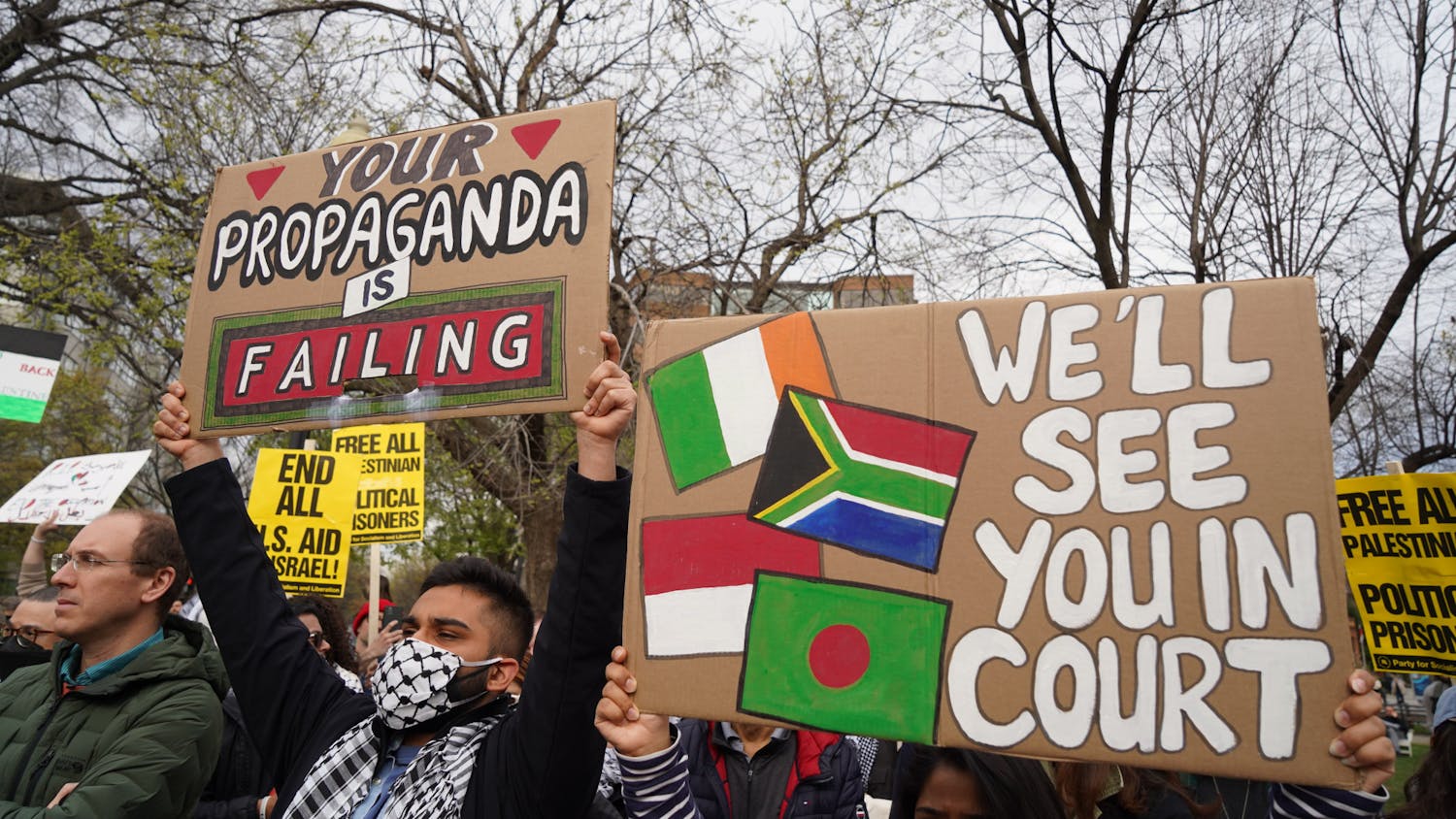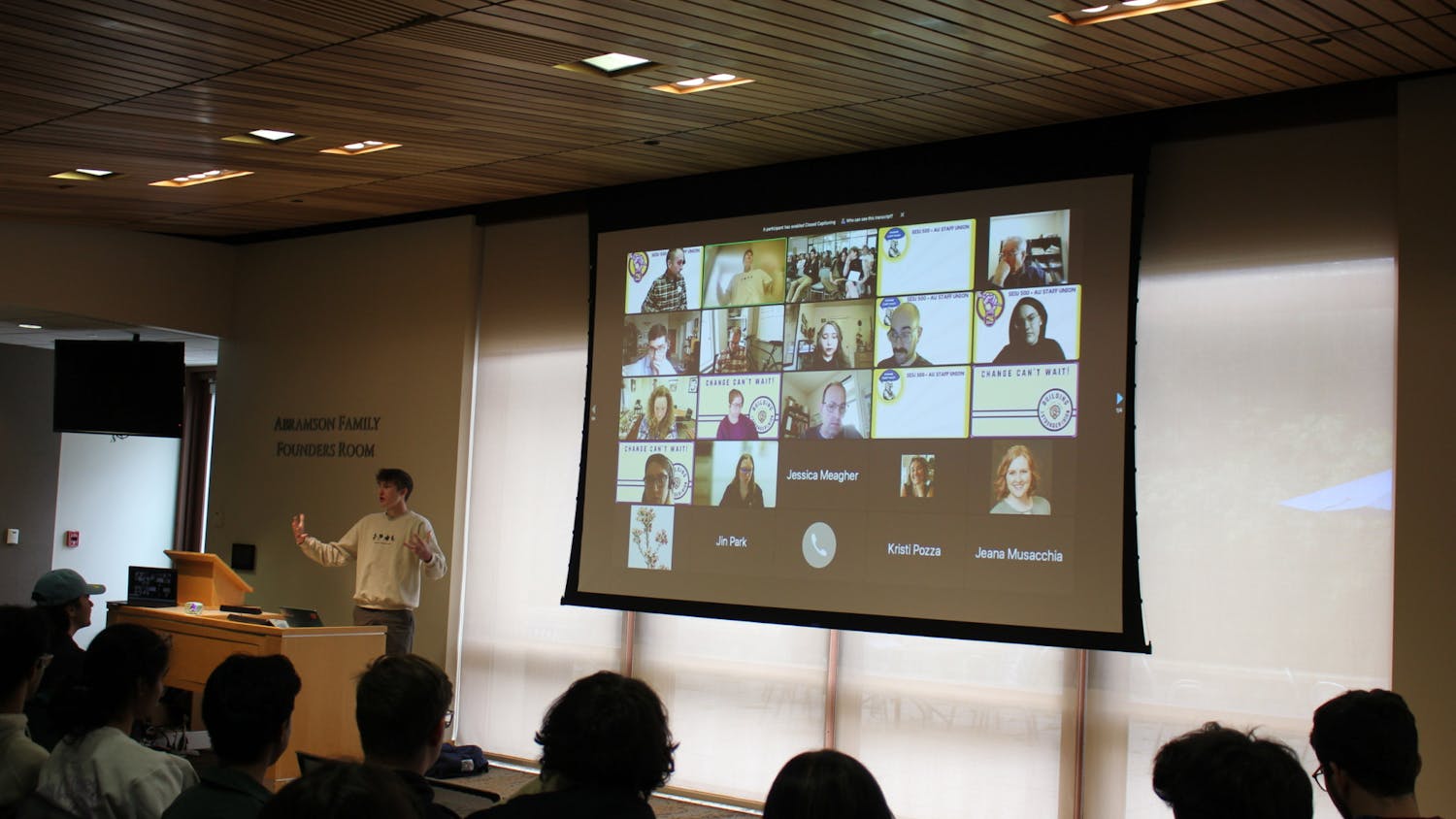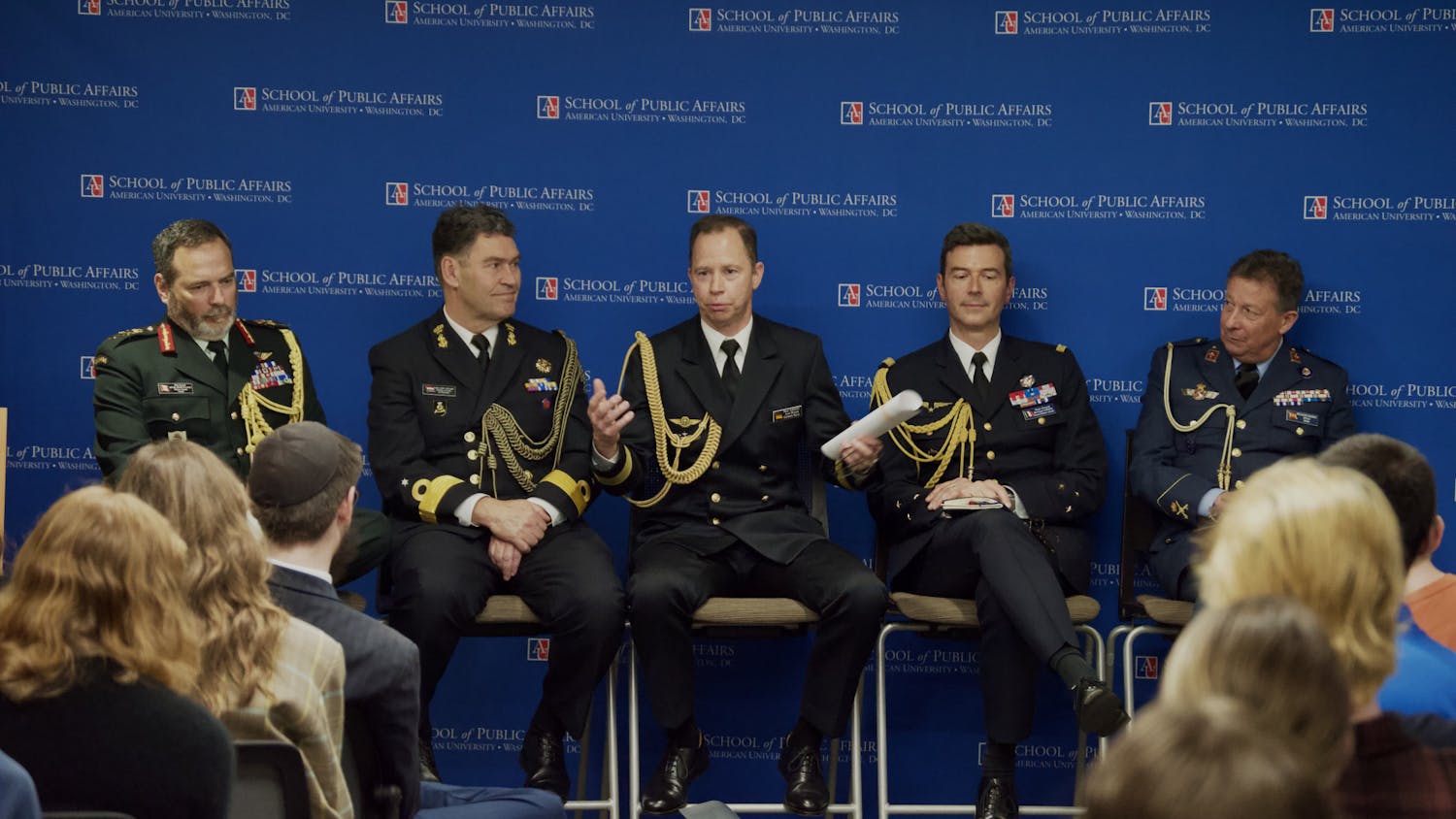As the threat posed by the extremist group known as the Islamic State of Iraq and Syria continues to grow, former Ambassador Akbar Ahmed told students to separate Islam from the violence of ISIS at a panel on Oct. 15.
The panel, moderated by School of International Service alumnus David Gregory, included SIS professor and former Pakistani Ambassador to the UK and Ireland Akbar Ahmed, Politico editor Susan Glasser and Washington Post associate editor and columnist David Ignatius.
“These are scary times: they are confusing, they are complex, but they are also very stimulating,” Gregory said.
Despite the frightening nature of events revolving around ISIS, Ahmed attributed the violent practices to the groups tribal culture.
“These events are very ingrained in tribal culture, [but have] nothing to do with Islam,” Ahmed said. “People chopping off other people’s heads has got nothing to do with Islam.”
Ahmed recently published a book, titled “The Thistle and the Drone: How America’s War on Terror Became a Global War on Tribal Islam,” on American conflict with tribal Islam.
Ignatius agreed with Ahmed, noting the distaste within the Muslim world for ISIS and its tactics, as well as the ineffectiveness of the group’s strategy in the region.
“As the Muslim world looks at this savagery, people are generally disgusted by it,” he said. “You can’t intimidate your way to success”
However, the general disdain for ISIS within the Islamic world should not deter the United States from taking action against them, Ignatius said. In fact, it makes it more necessary for the U.S. to clarify the mission in the region, the panel agreed.
“We have to be careful of who we are fighting and what our objective is,” Ahmed said.
Glasser and Ignatius were skeptical of the Obama administration’s stance on involvement with ISIS, joking that the official operation’s name should be “Operation: Reluctant Warrior” after the president himself.
“The Pentagon finally decided to give the operation a name: ‘Operation Enduring Resolve,” Glasser said. “I read that and it was almost like the Pentagon is playing a joke on the president because…the president has kept going out of his way to make sure that no one thinks he is anything other than an extremely reluctant warrior.”
However, Ignatius noted that patience with progress in the region is key to success in any operation.
“The consequences of not being patient are going to be bad for all of us,” he said.
Despite the call for patience, students were eager to know how they could help in resolving this international crisis, if at all.
Ahmed was quick to jump on the question, determined that students were the best advocates for the U.S abroad.
“You can help by being the best ambassadors of this country,” he said.





